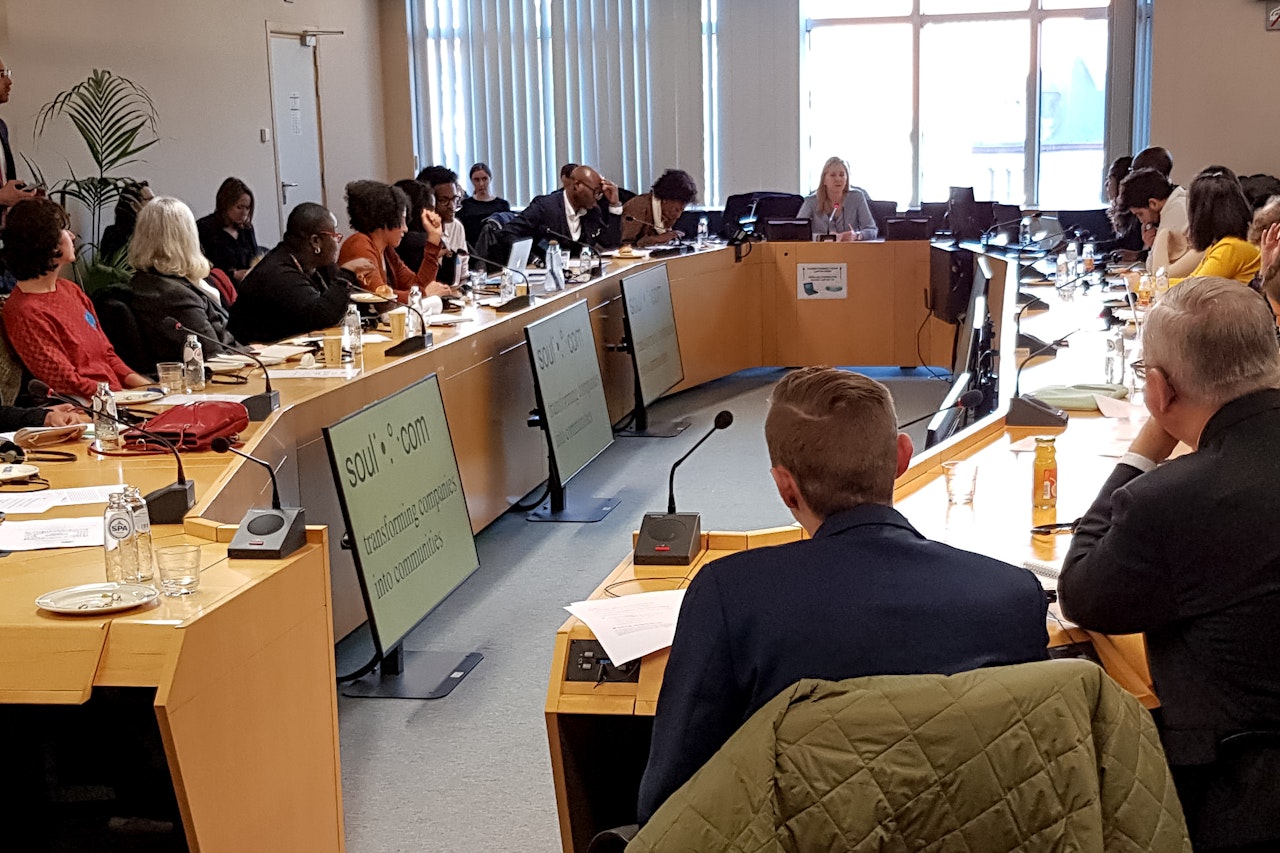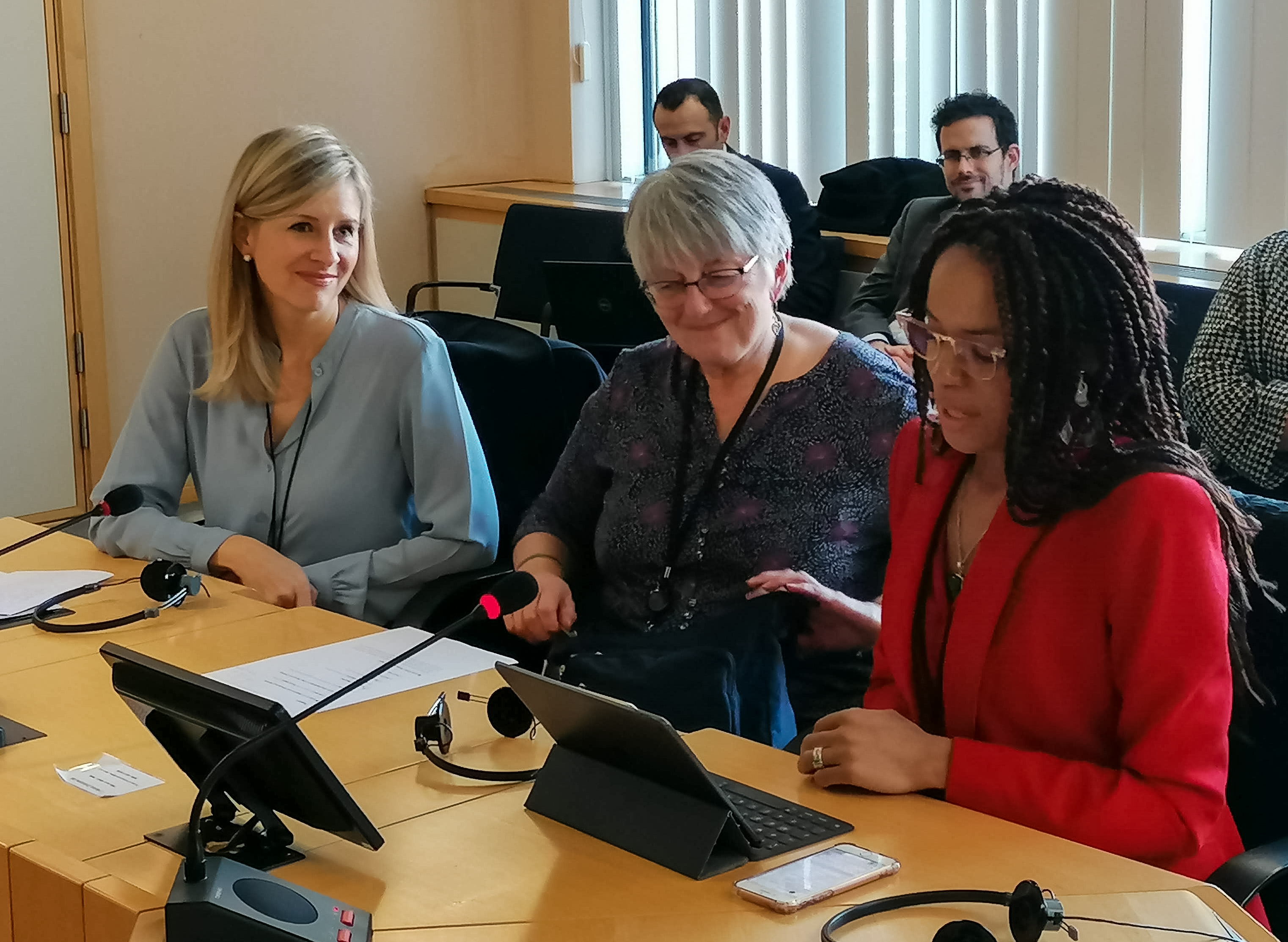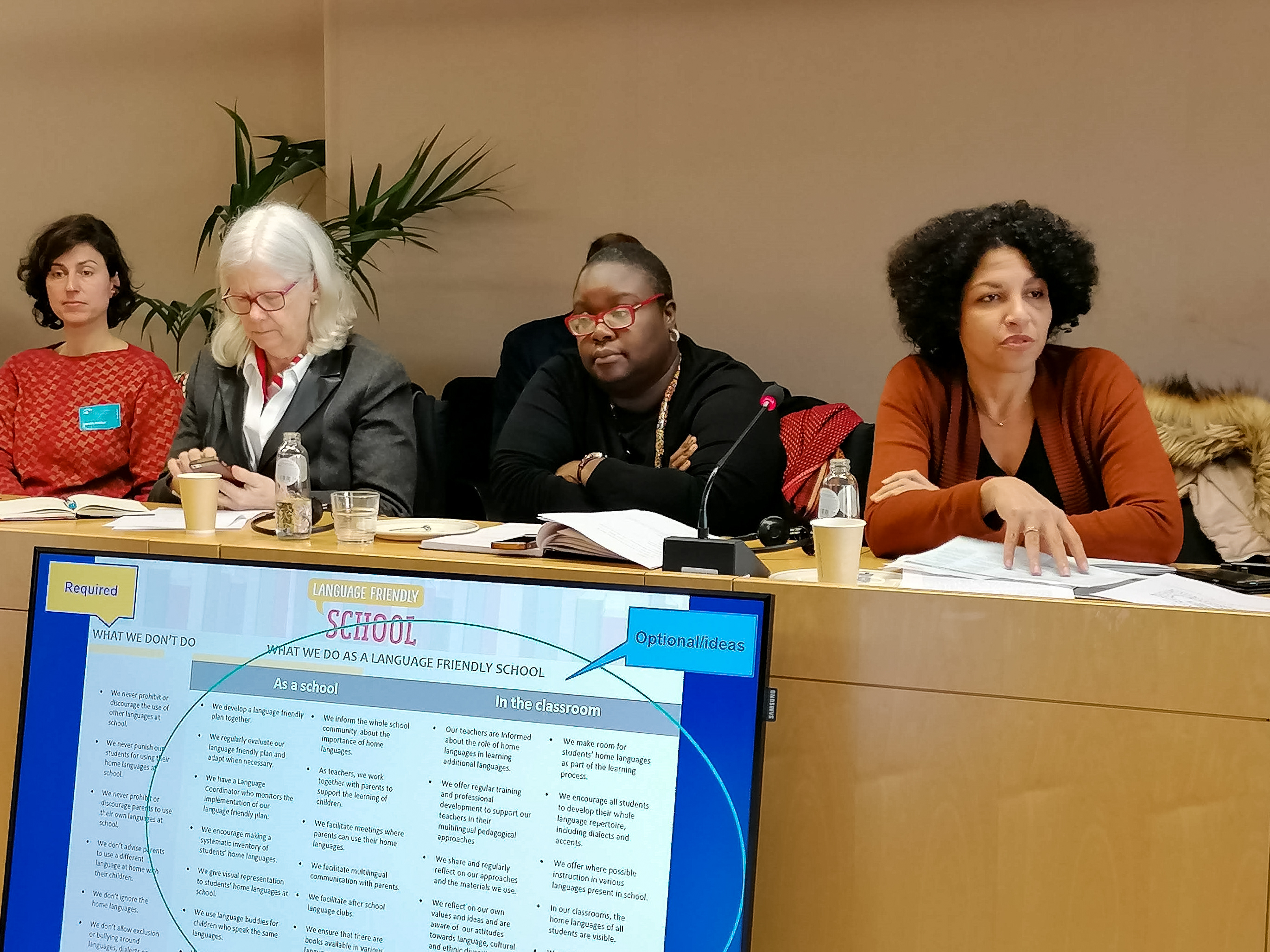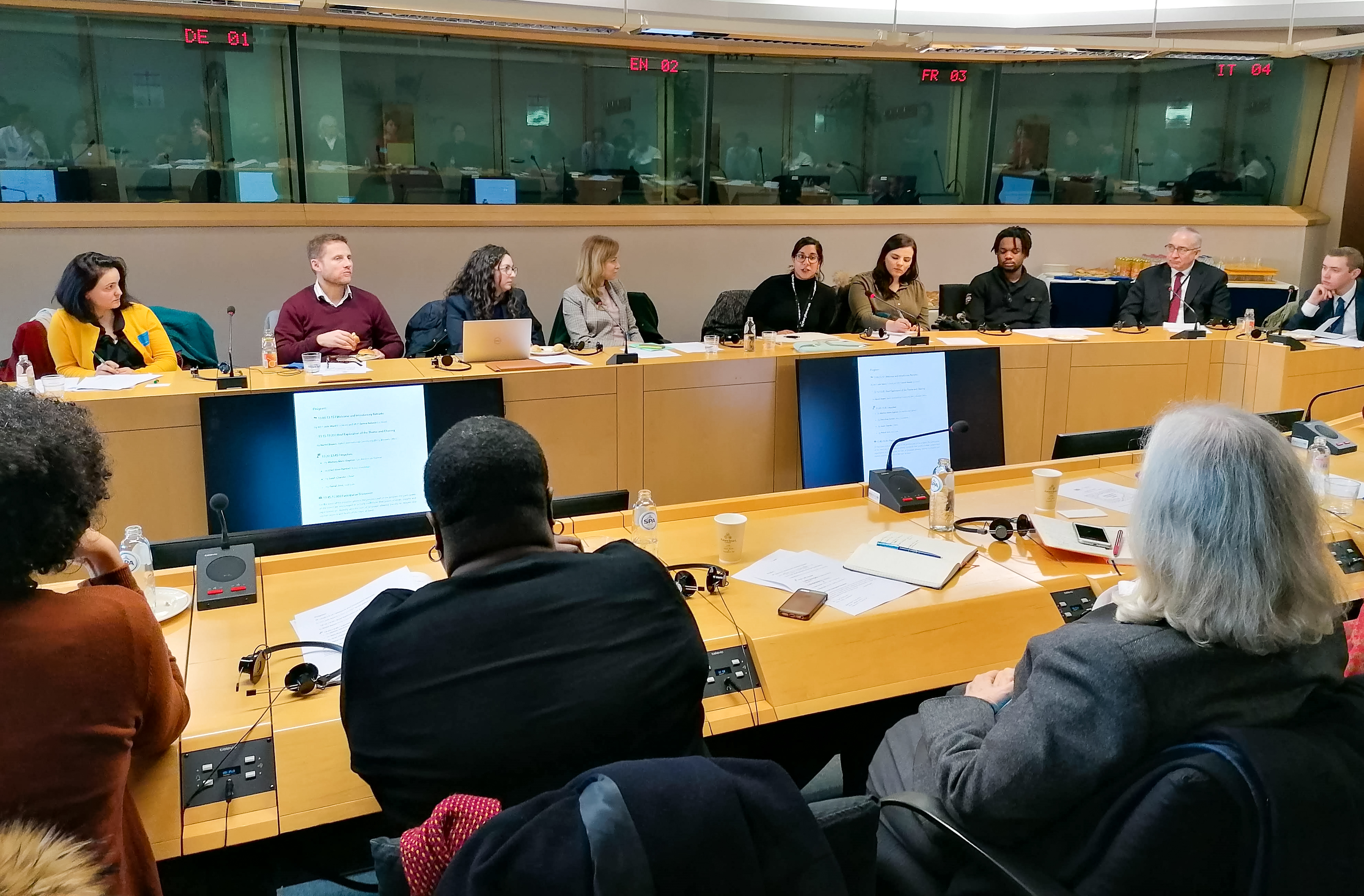Transcending differences through a unifying language
The Brussels office of the BIC explores the importance of language in fostering a shared identity at a European Parliament panel discussion

The Brussels office of the BIC explores the importance of language in fostering a shared identity at a European Parliament panel discussion

BRUSSELS — At a recent European Parliament panel discussion, the Brussels office of the Baha’i International Community (BIC) led an exploration of how institutions and civil society actors can develop language that at once respects diversity and fosters shared identity. This discussion comes at a time when questions of identity and belonging occupy a central place in contemporary discourses across Europe.
The panel, attended by some 40 policymakers and civil society representatives, was hosted by Julie Ward and Samira Rafaela, two members of the European Parliament Anti-Racism and Diversity Intergroup (ARDI), and chaired by the BIC Brussels office.
Ms. Ward expressed that she welcomed this conversation, giving an opportunity to frame these issues from a new perspective, and remarked on the power of language as a tool for either fostering cohesion or inciting division.
“We should value diversity as a unifying factor,” said Ms. Rafaela, “but how do we address this through language? We need to create language that is respectful towards people rather than laying blame on others. How can a language be developed that fosters a strong sense of loyalty to all of humanity?”

In a paper prepared for the discussion and distributed to participants at the gathering, the BIC office highlighted that much of the thinking about language has been directed towards celebrating diversity and promoting peaceful coexistence. Language reflects people’s attitudes toward one another and shapes their thoughts. The BIC suggests that, while it is essential to have language that respects differences, overemphasizing this can reinforce the notions of “us and them” that must be overcome.
The panel, therefore, focused on how institutions and social actors can address the root of the issue: that although celebrating diversity and advocating co-existence represent a step forward, a shared identity is needed to chart a path towards harmonious societies.

Pascal Jossi, a representative of an agency that assists firms and institutions to create inclusive organizational cultures, spoke about how the language used to describe differences among people can lead to a sense of othering. “It’s not about finding the best category to place someone in,” he said “but building a new reality in which everybody feels welcome.”
Mr. Jossi shared his experience as someone of Cameroonian descent born in Belgium and raised in Luxemburg, who in each of these places found himself referred to in terms that separated him from the majority. “This kind of tension will remain,” he said, “until we remodel our interactions. I don’t think adding or removing specific words from our vocabulary will alone make language a catalyst for creating an inclusive society; we have to examine what attitudes and assumptions underlie the way we speak to one another so that we can begin engaging in a way that builds trust and unity.”
“We are learning to speak in ways that enable us to establish interdependent and cooperative relationships,” said Mathieu Marie-Eugenie, describing his experience facilitating workshops with youth in the Paris area that promote coexistence and cooperation through poetry and artistic expression. “In an environment of trust and kindness, we are able to tell ourselves ‘I am a person who belongs within humanity,’ or in poetic language, ‘I am a drop, and I am a part of the ocean.’”
“Beyond our individual identities,” said Rachel Bayani, representative of the BIC, in her remarks at the forum, “we need to conceive of an overarching, shared identity, one which can unite, which is based on the understanding that humanity is one and that all the peoples of the world are part of the same human family. This is essential if the splintering of humanity into opposing groups is to give way to greater degrees of unity, and if the rich manifestations of diversity are to be constructively woven into the fabric of social life.”
